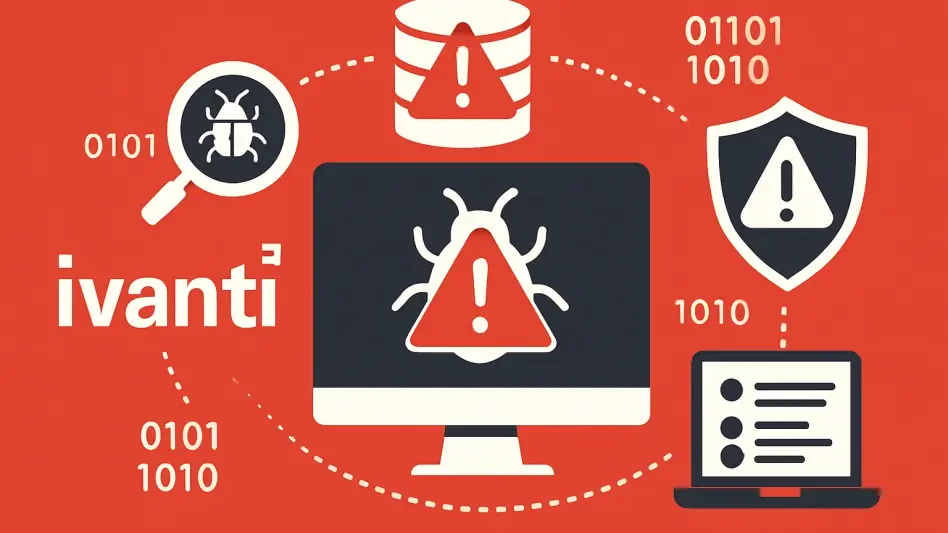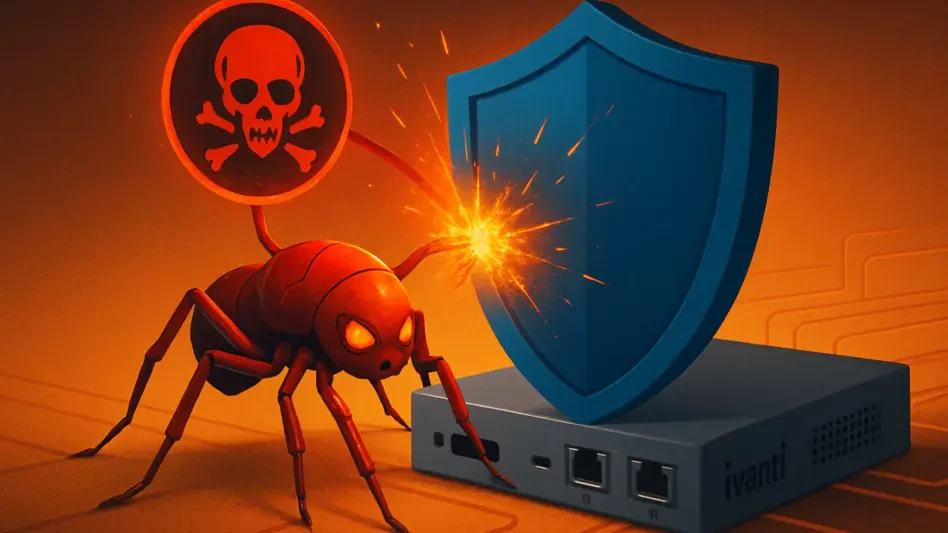In a startling revelation that has sent ripples through the cybersecurity community, Trend Micro’s Zero Day Initiative (ZDI) has brought to light 13 unpatched vulnerabilities in Ivanti Endpoint Manager, a critical tool used by countless organizations to oversee their network endpoints. This disclosure underscores a pressing issue in software security, as these flaws, ranging in severity, pose significant risks to enterprises worldwide. While not traditional zero-day exploits, ZDI labels them as ‘0day’ due to their unpatched status at the time of public announcement. The potential for local privilege escalation and remote code execution (RCE) heightens the urgency for organizations to understand and mitigate these threats. This situation not only highlights vulnerabilities in a widely trusted platform but also raises broader questions about the speed and transparency of vendor responses to such critical security gaps, setting the stage for a deeper exploration of the risks and challenges involved.
Unveiling Critical Security Gaps
The disclosure by ZDI reveals a troubling reality for users of Ivanti Endpoint Manager, with 13 high-severity vulnerabilities remaining unaddressed at the time of the announcement. These flaws carry CVSS scores between 7.2 and 8.8, signaling a substantial risk of exploitation if left unresolved. Among them, one vulnerability enables local privilege escalation through the AgentPortal service by exploiting improper validation of user input, potentially allowing attackers to execute code with System-level privileges. The other twelve vulnerabilities facilitate remote code execution, primarily due to similar input validation failures across various software components. Although most of these RCE flaws require authentication, one particularly severe issue, with a CVSS score of 8.8, can be triggered by deceiving a user into interacting with a malicious file or webpage. This range of threats paints a concerning picture for organizations relying on this software for endpoint management, emphasizing the need for heightened vigilance.
Beyond the technical details, the impact of these vulnerabilities on organizational security cannot be overstated. Enterprises using Ivanti Endpoint Manager face the daunting prospect of attackers gaining unauthorized access or elevating privileges, which could compromise entire systems. The root cause, centered on inadequate input validation, is a well-documented issue in software development, yet it continues to plague critical tools. Without patches available at the time of disclosure, IT teams are left in a precarious position, forced to rely on temporary workarounds or restricted usage to mitigate risks. ZDI’s decision to release limited advisories, despite the lack of detailed exploit information or CVE identifiers, aims to alert users to the dangers while balancing the risk of aiding potential attackers. This scenario underscores a persistent challenge in cybersecurity: ensuring that software foundational to business operations remains secure against evolving threats, especially when immediate fixes are not forthcoming.
Challenges in Vendor Response and Patch Delays
A significant aspect of this disclosure is the delayed response from Ivanti in addressing these critical vulnerabilities, reflecting broader systemic issues in the cybersecurity industry. The local privilege escalation flaw was reported to Ivanti several months before the public disclosure, with initial acknowledgment early in the year and a patch timeline extending well into the following year. Similarly, the twelve RCE vulnerabilities, reported more recently, faced postponed patch deadlines, with Ivanti requesting extensions up to March of the next year for a complete resolution. These delays prompted ZDI to publish advisories after their standard 120-day disclosure window expired, citing insufficient progress or justification from the vendor. Such timelines reveal a tension between the urgency of protecting users and the time vendors require to develop robust solutions, often leaving organizations exposed during the interim period.
Compounding the issue is the complexity of crafting effective patches for these intricate flaws, as highlighted by Ivanti’s official stance. The company has emphasized that resolving these vulnerabilities demands substantial resources and time to ensure fixes are comprehensive and cannot be easily circumvented by attackers. Ivanti also maintains that the immediate risk to customers is minimal due to the difficulty of exploiting these issues, a perspective that contrasts sharply with ZDI’s recommendation to limit interaction with the affected software as the primary mitigation strategy. This divergence in viewpoints illustrates a critical challenge in vendor-user dynamics: balancing the thoroughness of security updates against the pressing need for timely protection. For organizations, this delay translates to prolonged uncertainty, necessitating proactive measures to safeguard systems while awaiting definitive solutions from the vendor.
Broader Implications for Cybersecurity Practices
The unpatched vulnerabilities in Ivanti Endpoint Manager serve as a stark reminder of the ongoing challenges in maintaining robust software security within enterprise environments. This situation highlights the critical importance of proper input validation as a foundational element of secure coding practices, an area where lapses can lead to severe consequences. Beyond the technical specifics, the disclosure points to a systemic issue in the industry—vendors often struggle to keep pace with the rapid identification of flaws, leaving users vulnerable during extended patch development periods. The lack of immediate fixes forces IT departments to adopt interim measures, such as restricting access or closely monitoring systems for suspicious activity, which can strain resources and disrupt operations. This case exemplifies how even widely trusted tools can harbor significant risks if security practices fail to evolve alongside emerging threats.
Looking at the bigger picture, the delayed patching timelines and limited public information about these vulnerabilities underscore the need for improved communication and transparency between vendors and users. While Ivanti’s commitment to responsible disclosure and quality fixes is commendable, the extended deadlines raise concerns about accountability and the prioritization of user safety. ZDI’s approach, though restrained in detail, prioritizes alerting the community to potential dangers, fostering a dialogue about risk management in the absence of patches. This dynamic suggests a pressing need for standardized timelines or protocols in vulnerability disclosure and resolution, ensuring that organizations are not left navigating uncharted waters. As cyber threats grow in sophistication, fostering trust through swift, clear responses will be paramount for vendors to maintain confidence among their user base, reinforcing the importance of proactive security strategies.
Reflecting on Lessons Learned
Looking back, the disclosure of 13 unpatched vulnerabilities in Ivanti Endpoint Manager by ZDI marked a pivotal moment that exposed critical weaknesses in a key enterprise tool. The severity of these flaws, coupled with prolonged patch timelines, underscored the delicate balance between thorough remediation and urgent user protection. Ivanti’s acknowledgment of the issues and subsequent delays in delivering fixes contrasted with ZDI’s push for immediate awareness, revealing differing priorities in addressing such threats. This episode served as a wake-up call for the industry, highlighting persistent gaps in software security practices. Moving forward, organizations must prioritize robust mitigation strategies, such as limiting exposure to vulnerable components, while advocating for faster vendor responses. Additionally, embracing stricter coding standards and fostering transparent communication can help prevent similar crises, ensuring that critical systems remain resilient against evolving cyber risks.








